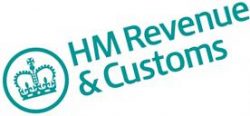
Informal Repayment Plans & Reduced Settlement Negotiations
Repayment Plans
A Repayment Plan (or Time To Pay Arrangement) is where a proposal to repay your creditors is put to your creditors, often offering to repay a small percentage of your debts based on what you can afford from your ongoing profits. Bridge Newland Limited are experienced in these type of negotiations and have agreed many successful repayment plans for our clients.
This is not a legally binding contract and therefore this option requires the support of 100% of your creditors because should any of the creditors not consent then they can still seek a recovery of their debt through the normal legal channels.
HMRC Time to Pay Negotiations
The most common repayment plan negotiations we undertake are with HMRC as the reality is that this is the creditor who companies are most likely to fall behind with their payments on and because often companies fail to save correctly to pay for their taxes. We have great successes when it comes to buying time to pay taxes as HMRC is more likely to take notice of an offer put to them by an insolvency practitioner due to the real prospect of insolvency and no payment at all if they fail to accept their reasonable proposal. Therefore contact us for help if this applies to your company.

Reduced Settlement Negotiations
Reduced Settlement Negotiations are where Bridge Newland help your company to negotiate a reduction on a business debt. We have had many successes recently with this method of business turnaround whereby we write to one or more creditors to your Company and we provide a detailed report on your Company’s position in order to negotiate a saving on what you pay to these creditors in full and final settlement of their debt. This is most common with bank debt where the majority of the sums due amount to interest and charges.
What Will Happen to my Company if I do Nothing?
Whilst you could argue that this is not an option, and we would not recommend that you do nothing, the result of not dealing with the Company’s debts should still be explained given the regularity of this stance being taken by Directors.
If a Company is insolvent and pressure from creditors is increasing, but nothing is done, it is likely that a Winding up Petition would be presented against the Company by a creditor or the court. The Registrar of Companies may also seek to strike the Company off the register at Companies House (usually if statutory returns are not filed with them on time).
All Company Directors have legal obligations as set out in the Companies Act 2006 and therefore Directors should avoid doing nothing if they consider their Company to be Insolvent as this is likely to be considered poor conduct. If there are no funds to place the Company into liquidation or administration, at the very least, Director’s should write to the creditors of the insolvent Company to advise them that there are insufficient funds to voluntarily wind up the Company and to invite the creditors to issue a Winding up Petition to place the Company into Compulsory Liquidation.
If your company is not insolvent but you wish to close it down, you should seek the advice of Bridge Newland, as well of your accountant, as your course of action in this regard is dependent on the tax implications. The most common actions for solvent companies are strike off or MVL.



